|
|
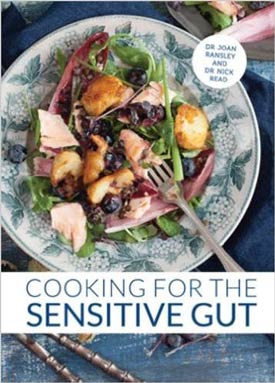 Cooking for the Sensitive Gut Cooking for the Sensitive Gut In January 2016 many of Joan's excellent recipes were published in her new book, written with gastroenterlogist Dr Nick Read, Cooking for the Sensitive Gut. Here are the delicious recipes that she devised for us last year. Dr Joan Ransley is a freelance nutritionist, chef, writer and photographer. It was while studying for her MMedSci at Sheffield University that she developed an interest in diet and the Irritable Bowel Syndrome.
Click on the name of the recipe to go to it. Aubergine, quinoa, feta and fresh herbs Kedgeree with turmeric and coriander |
Aubergine, quinoa, feta and fresh herbs Gluten free, nut free, vegetarian Quinoa is a great ingredient to use in Mediterranean style dishes. It is low in FODMAPs and should be tolerated by most people with IBS. Serves 4
Kedgeree with turmeric and coriander This Anglo/Indian dish uses ginger and turmeric which can have a soothing effect on the gut. Spring onion tops give the flavour of onions without the symptoms. This is a lovely brunch or light super dish. This version of kedgeree does not contain raisins which are high in fermentable carbohydrates. Gluten free, dairy free, nut free Serves 4
Tip:
Potato and pastrami salad with dill and mustard
|

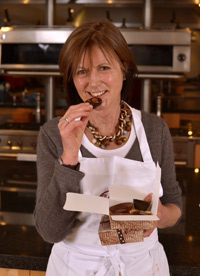 Recipes
Recipes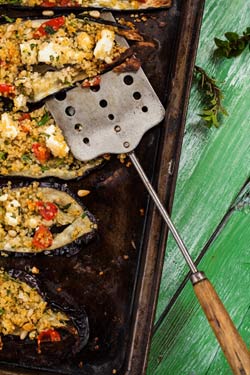 Ingredients:
Ingredients: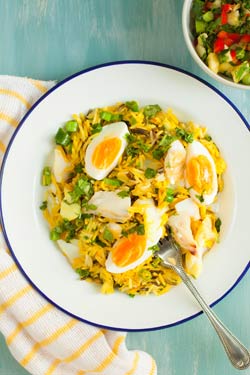
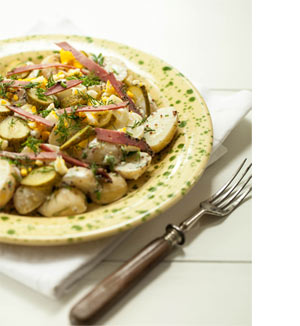 Ingredients:
Ingredients: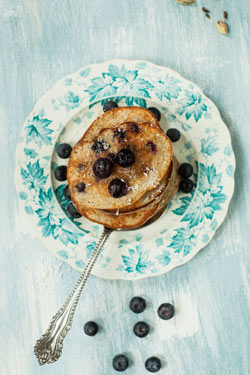 Makes 8 pancakes
Makes 8 pancakes





